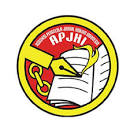Carbon Trading Literacy in Coastal Communities of Gampong Sungai Lueng-Langsa
Abstract
Carbon trading is an activity of buying and selling carbon credits, where the buyer produces carbon emissions that exceed the specified limits. This is regulated in Presidential Regulation (Perpres) Number 98 of 2021 concerning the Implementation of the Economic Value of Carbon to Achieve Nationally Determined Contribution Targets. and Controlling Greenhouse Gas Emissions in National Development. Carbon trading is currently a priority program in the government to reduce greenhouse effect emissions, air conditioning, air pollution and factory waste which result in uncontrolled climate change. Through carbon trading literacy, the public can understand the importance of preserving mangroves in Gampong Sungai Lueng. The use of mangroves is very necessary to control carbon and community economic growth, so from the results of this research the community needs knowledge about carbon trading which is currently included in the government's priority program amidst carbon trading which is currently still an issue that must continue to be socialized to the community. Efforts to preserve mangroves as a marine resource for sustainable development in order to create conditions that are free of emissions from the impact of greenhouses, air conditioning, pollution and waste from factories that pollute the environment which has an impact on society, this is also the case at all times for the environment in all regions in Indonesia.
Downloads
References
Alikodra, H. S. Mangrove Ecosystems as Natural Protectors of Coastal Areas. Paper presented at the Workshop on Coastal Ecosystem Rescue in Sand Mining Areas, Ministry of Marine Affairs and Fisheries. Batam. November 12, 2003
Asnawi. M.I., et al, Regulatory Arrangement in Supporting the Restructuring of State-Owned Plantation Enterprises, Journal Penelitian Hukum De Jure, Vol. 24. No. 2, July 2024, p. 107-120
Asy'ari, R., Dienaputra, R. D., Nugraha, A., Tahir, R., Rakhman, C. U., & Putra, R. R.. Study of the Concept of Community-Based Ecotourism in Supporting Tourism Development: A Literature Study. Cultural Tourism: Scientific Journal of Religion and Culture, Vol. 6 No. 1, 2021, p. 9-19.
Cadizza, Riza, Rizanizarli, Mainita, Carbon Trading Arrangements and Benefits for Indonesia, Unmuha Law Journal, Vol. 1 No. 1, 2024, p. 1-17
Deden Djaenudin, Mega Lugina, Ramawati Ramawati, Galih Kartikasari, Indartik Indartik, Mirna Aulia Pribadi, Satria Astana, The Forest Carbon Market Implementation Progress in Indonesia, Journal of Forestry Policy Analysis, Vol.13 No. 3, 2016, p. 159 172
Emi Karminarsih, Utilization of Mangrove Ecosystems for Minimizing Disaster Impacts in Coastal Areas, Journal of Tropical Forest Management, Vol. XIII No. 3, December 2007, p. 182-187
Gatut Susanta and Hari Sutjahjo, Will Indonesia Sink Due to Global Warming? Penebar Plus, Jakarta, 2007.
Hamzah, S. F., Hamdani, H., & Astuty, S., Macrozoobenthos Community Structure in Pandansari Mangrove Forest Ecotourism Area, Brebes, Central Java. National Marine Journal, Vol. 17 No. 1, 2022, p. 1-12.
https://www.antaranews.com/berita/3814536/brin-sebut-tanaman-mangrove-mampu-menyerap-emisi-karbon, dated July 18, 2024
Irza Khurun‟in, and Genta Mahardhika Rozalinna. Community and Water Resources Governance: Participation and Contestation in Water Resources Management in Gunung Kawi, Malang Regency, INTERAKTIF: Jurnal Ilmu-ilmu Sosial, Vol. 13, 2021, p. 66-81
M Taufik Rahmadi, Eni Yuniastuti, Maulana Abdul Hakim, Ayu Suciani, Mangrove Distribution Mapping Using Sentinel-2A Imagery: Case Study of Langsa City, Jambura Geoscience Review, Vol. 4 No. 1, January 2022, p. 7
Mappatoba, M., Synergy of Empowering Marginalized Communities in Disadvantaged Villages in the Regency / City of Central Sulawesi Province. Media Litbang Central Sulawesi Vol. 2 No. 1, 2009, p. 34 -43
Muâ, M. R., & Indahsari, K., Ecotourism Development in Indonesia. SENRIABDI, Vol. 1 No. 1, 2021, p. 295-308.
Mulyadi, E., Hendriyanto, O., & Fitriani, N., Mangrove forest conservation as ecotourism. Scientific Journal of Environmental Engineering, Vol. 2 No. 1, 2010, p. 11-18
Purnobasuki, H.. Utilization of mangrove forests as carbon storage. PSL Bulletin, University of Surabaya, Vol. 28 No. 3, 2012, p. 1-6
Puspitasari, N., Lestari, E., & Widiyanti, E., Attitudes of Communities Around the Marunda Area Towards Ecological Restoration of Mangrove Forests in Marunda Village, Cilincing District, North Jakarta. AGRITEXTS: Journal of Agricultural Extension, Vol. 41 No. 2, 2018, p. 105-121
Putra, R. R., Mangrove Forest Tourism Web Information System in Belawan Sicanang Village, Medan Belawan District as a Promotional Media. Scientific Journal of Core IT: Community Research Information Technology, Vol. 7 No. 2, 2019, p. 84-89
Rumbino, F., Moeljono, S., & Ungirwalu, A., Local Community Perceptions of Mangrove Forest Development as an Ecotourism Area in Kampung Ruar, East Biak District, Biak Numfor Regency. Cassowary, Vol. 4 No. 2, 2021, p. 205-220
Subrada. Guide to Economic Valuation of Mangrove Ecosystems. Jakarta: Ministry of Environment. 2008.
Syukur, D., M. I. Aipassa, and M. Arifin. Policy Analysis of Community Involvement in Supporting Mangrove Forest Management. Jurnal Sosial Politika Vol. 14 No. 2, 2007.
UNFCC, UNFCC Profile, accessed from https://unfccc.int. on July 18, 2024
Utomo, B., Budiastuti, S., & Muryani, C., Mangrove Forest Management Strategy in Tanggul Tlare Village, Kedung District, Jepara Regency. Journal of Environmental Science, Vol. 15 No. 2, 2017, p. 117-123
Wahyukinasih, M. H., Wulandari, C., & Herwanti, S., Business feasibility analysis based on non-timber forest products of mangrove ecosystem in Margasari Village, East Lampung. Journal of Sylva Lestari, Vol. 2 No. 2, 2014, p. 41-48
Wahyuni, Y., Putri, E. I. K., & Simanjuntak, S. M., Total economic valuation of mangrove forests in the Mahakam Delta Region of Kutai Kartanegara Regency, East Kalimantan. Wallacea Journal of Forestry Research, Vol. 3 No. 1, 2014, p. 6-18
Wijayanti, L., Strategies to improve the welfare of fishing communities in Pademawu sub-district, Pamekasan district. Agriekonomika, Vol. 2 No. 2, 2013, p. 139-152
Wijayanti, P., Novianti, T., & Hastuti, H., Economic analysis and ecotourism management strategy (case study of Mount Salak Endah tourist area in Bogor district). Indonesian Journal of Agricultural Sciences, Vol. 13 No. 3, 2008, p. 173-181.
Downloads
Published
How to Cite
Issue
Section
License
Copyright (c) 2024 Mahmul Siregar, Vita Cita Emia Tarigan, Mahmud Mulyadi, Yeti Meliany Lubis, M. Iqbal Asnawi

This work is licensed under a Creative Commons Attribution-ShareAlike 4.0 International License.











